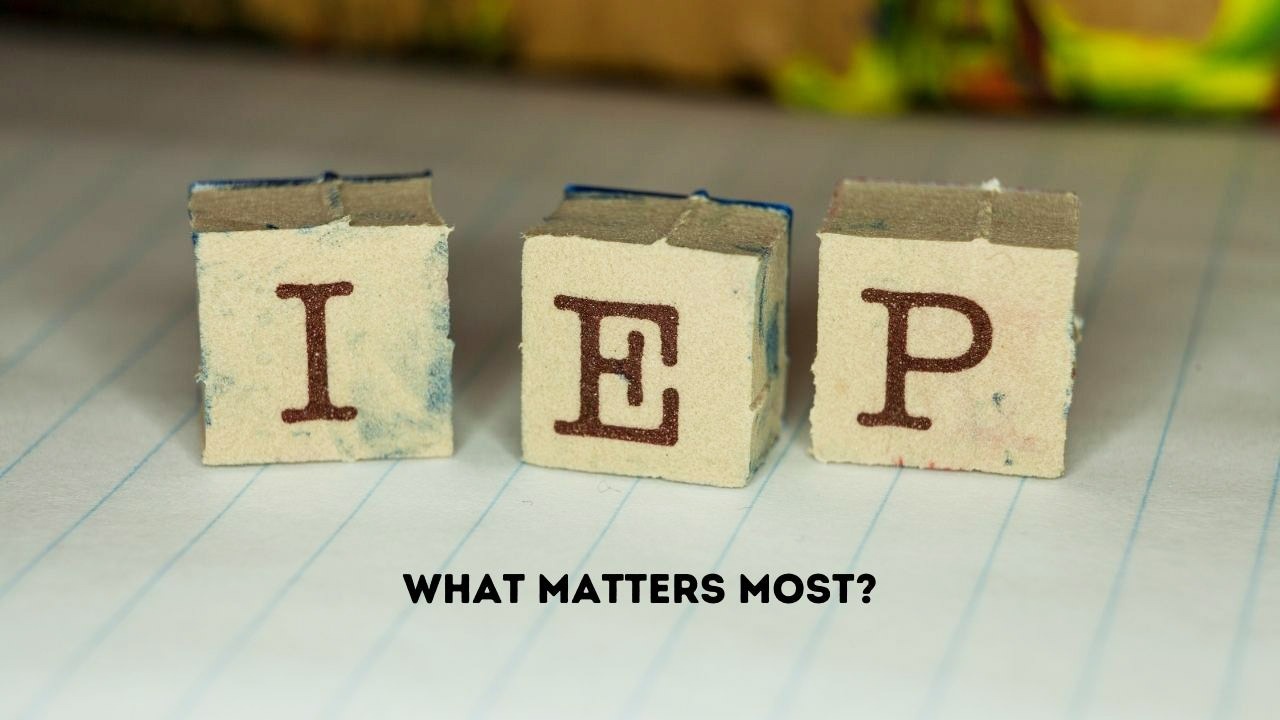What Matters Most in an IEP

Are you overwhelmed at the thought of an IEP meeting? Do you “quiver in your boots” just thinking of reading evaluations that make no sense and do not describe your child as you know them? Are you frustrated from hearing all of the negatives about your child but little progress, year after year? If you answered “yes” to any of these questions, read on. Some of the families I work with have coined the acronym PTSD-IEP. The trauma of past IEP meetings can trigger stress and discomfort before the meeting even occurs.
How can you get a good IEP? The basis for a good IEP are the evaluations and progress reports that came before it. If your child is due for an annual IEP meeting, and is not being re-evaluated, good progress reports will primarily dictate what goes into your IEP for the new year. These are three essentials that matter most in the IEP process.
Strong Evaluations/Detailed Progress Reports
If your child is due to be re-evaluation, the evaluations must be done by competent professionals, using tests appropriate to the needs and challenges of the child. For example, if a child is not yet verbal, test results must not rely on language skills. If the child speaks a language other than English, testing should be done in their native language. All evaluations must have a functional component, which would include a classroom and sometimes home observation and parent input.
For an annual IEP where the child is not being re-evaluated, the information in the progress reports is most important. Did the child meet their previous goals? Is there data to back up any progress noted? If there is no formal testing required for the current year, how did the teacher and therapists measure progress? Ask for the data and examples of the pre and post progress measures. Through your own experience with your child, do you agree with the progress being noted?
A Big Red Flag: Vagueness
Language in the evaluation or progress report that says, “progressing nicely”, “continuing to progress”, “nice job” or other ambiguous phrases are useless. If a goal is written to be achieved independently four out of five times that means the child should be hitting that goal 80% of the time. In this example, the progress should be given to you in percentages. For example, the child is completing the task 65% of the time. If they have not met 80% as the goal is written, why haven’t they? What additional supports will they need to get to 80%? Being vague is not quantifying progress.
One of the biggest issues I see are IEP’s that continue for years without clear-cut data to demonstrate performance and progress toward goals. In addition to measurable progress, information to support progress should also be included. This would consider evidence of: level of independence in performing the skills, supports used (visuals, prompting, etc.), level of participation and specific tasks/materials used. All of this information is important to be included in the IEP for the future success of the child.
Trust is Earned:
Have you heard the phrase “you need to trust us” from your school district? Does it leave you “bewildered or angry”? I have heard the words “trust us” numerous times; if you have to ask for my trust, I am very suspicious. Trust must be earned, not requested.
When I attend an IEP meeting, I am always looking for transparency. Are the staff, teachers, therapists, and administration open to suggestions for the child’s program? Will they admit when they don’t know something and offer to do research? Will they listen to parent input and consider it valid? Parent input is not just for that section (“parent input”) in the IEP, never to be considered again. I am looking for open discussion, thinking “outside the box” and creativity, not closed-minded staff and “cookie-cutter” IEP’s. Stay focused on what your child needs and expect that the school will too. Have a vision for your child and stay focused on what matters.



